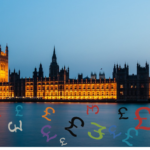They may take away our lives, but they’ll never take our freedom to drive!

Petrol today costs around 40% more than it did 12 years ago, after adjusting for inflation, but Australians still drive like it’s going out of fashion. Australians have defied the petrol bowser again and again since the 90s, bringing into question what impact some government policies may have in curving our enthusiasm for the wheel. Seems there is no pricing Australians out of their cars.
One of the ways in which governments hope to influence people’s activities and consumption is by affecting prices. All things being equal, increasing costs is meant to decrease consumption. And decreasing consumption should decrease environmental impact.

Yet, Australians are unwilling to let go of their car keys, despite the cost blow out. Petrol prices increased 51% from 1998 to 2008, and while they’ve dropped slightly from the peak, they are still 35% higher than in the late 90s. Beyond the whinging and media focus on the topic, Australians’ driving habits appear unfazed. Passenger vehicles travel between 7,200km and 7,700km per person every year since the late 90s, with only minor variations each year.
But not only are Australians not driving less, they’re also moving towards less fuel efficient SUVs over sedans.

So, are Australians too wealthy to be easily manipulated by monetary pressures?
An AC Nielsen survey in 2006[1] suggested 60% of Australians were decreasing their car use to deal with the price increases. But it seems people overestimate their willingness or ability to update their behaviours according to their environment. Increased petrol prices definitely led to increased snarling at the local servo. But people kept find themselves sucking on the bowser’s tit, much like the electorate with the major parties: they don’t like it, but are too lazy to search for other options.
Unless there’s a party willing to go beyond a 50% tax increase to test how elastic the petrol guzzlers are, what chance do governments have to guide behaviour through tariffs.
Sources
http://www.aaa.asn.au/aaa-agenda/affordability/latest-fuel-prices/
http://atrf.info/papers/2010/2010_gargett.pdf
http://stat.abs.gov.au/OECDStat_Metadata/ShowMetadata.ashx?Dataset=ERP_QUARTERLY&ShowOnWeb=true&Lang=en
ABS : 6401.0 Consumer Price Index, Australia, TABLES 1 and 2. CPI: All Groups, Index Numbers and Percentage Changes
[1] http://www.smh.com.au/news/business/aussies-changing-driving-habits-to-cope-with-fuel-prices/2006/03/07/1141493652510.html















